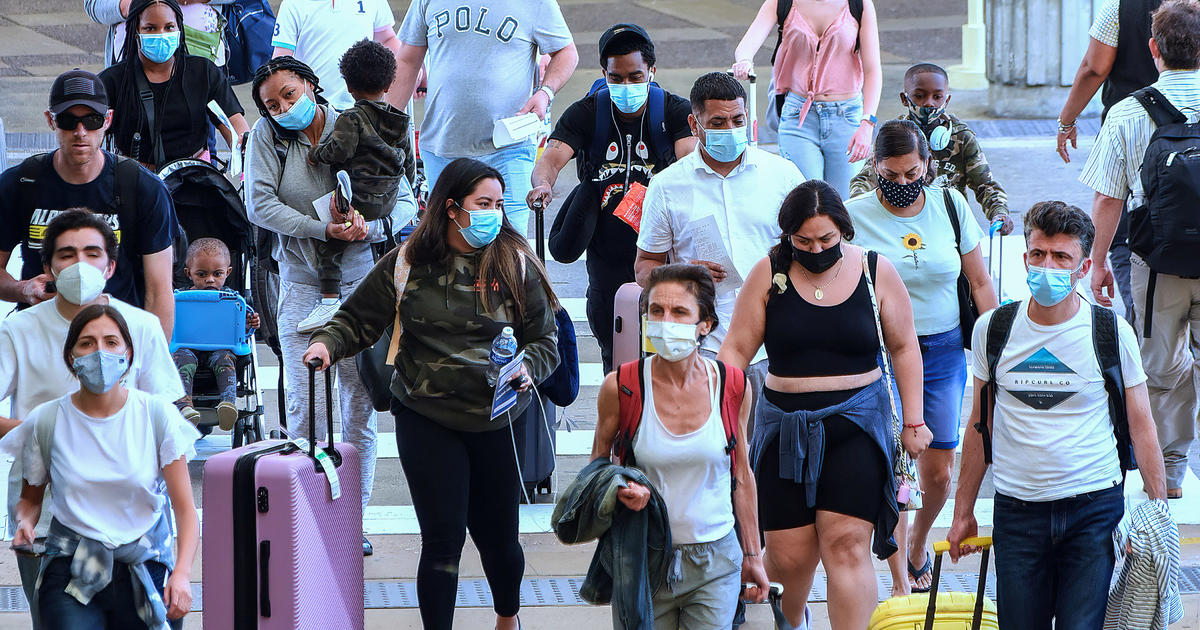
CDC says "pivotal discovery" about delta variant prompted new mask guidance and urges universal masking in some places
CBSN
The Centers for Disease Control and Prevention is urging local health authorities to consider heightened prevention strategies like "universal masking" for public indoor settings, particularly when it comes to large indoor gatherings with travelers. It cited new data from a delta variant outbreak in Massachusetts that led to hundreds of coronavirus infections — many among fully vaccinated travelers.
The CDC, in the agency's Morbidity and Mortality Weekly Report, also published more details about the "pivotal discovery" that prompted federal health officials to ramp up their masking guidance earlier this week. Tests used to diagnose cases linked to the Massachusetts outbreak had similar "cycle threshold" values among both unvaccinated and fully vaccinated "breakthrough" cases, suggesting both groups could be carrying similar loads of the virus. "High viral loads suggest an increased risk of transmission and raised concern that, unlike with other variants, vaccinated people infected with Delta can transmit the virus," CDC Director Rochelle Walensky said in a statement.
The president of El Salvador is refuting allegations made by Kilmar Abrego Garcia - the man whose mistaken deportation by the Trump administration has fueled a monthslong legal saga – in which he said he was beaten and subject to psychological torture while in prison in the Central American country.

Washington — President Trump is bringing pomp and circumstance to his signing of the "big, beautiful bill" on Friday, with a 4 p.m. Independence Day ceremony at the White House. The current $2,000 child tax credit, which would return to a pre-2017 level of $1,000 in 2026, will permanently increase to $2,200. The bill would allow many tipped workers to deduct up to $25,000 of their tips and overtime from their taxes. That provision expires in 2028. The bill would make changes to the Supplemental Nutrition Assistance Program, or food stamps, expanding work requirements and requiring state governments with higher payment error rates to cover some of the program's costs. The legislation also includes more than $46.5 billion for border wall construction and related expenses, $45 billion to expand detention capacity for immigrants in custody and about $30 billion in funding for hiring, training and other resources for U.S. Immigration and Customs Enforcement. The legislation would raise the debt ceiling by $5 trillion, going beyond the $4 trillion outlined in the initial House-passed bill. Congress faces a deadline to address the debt limit later this summer.





















 Run 3 Space | Play Space Running Game
Run 3 Space | Play Space Running Game Traffic Jam 3D | Online Racing Game
Traffic Jam 3D | Online Racing Game Duck Hunt | Play Old Classic Game
Duck Hunt | Play Old Classic Game









